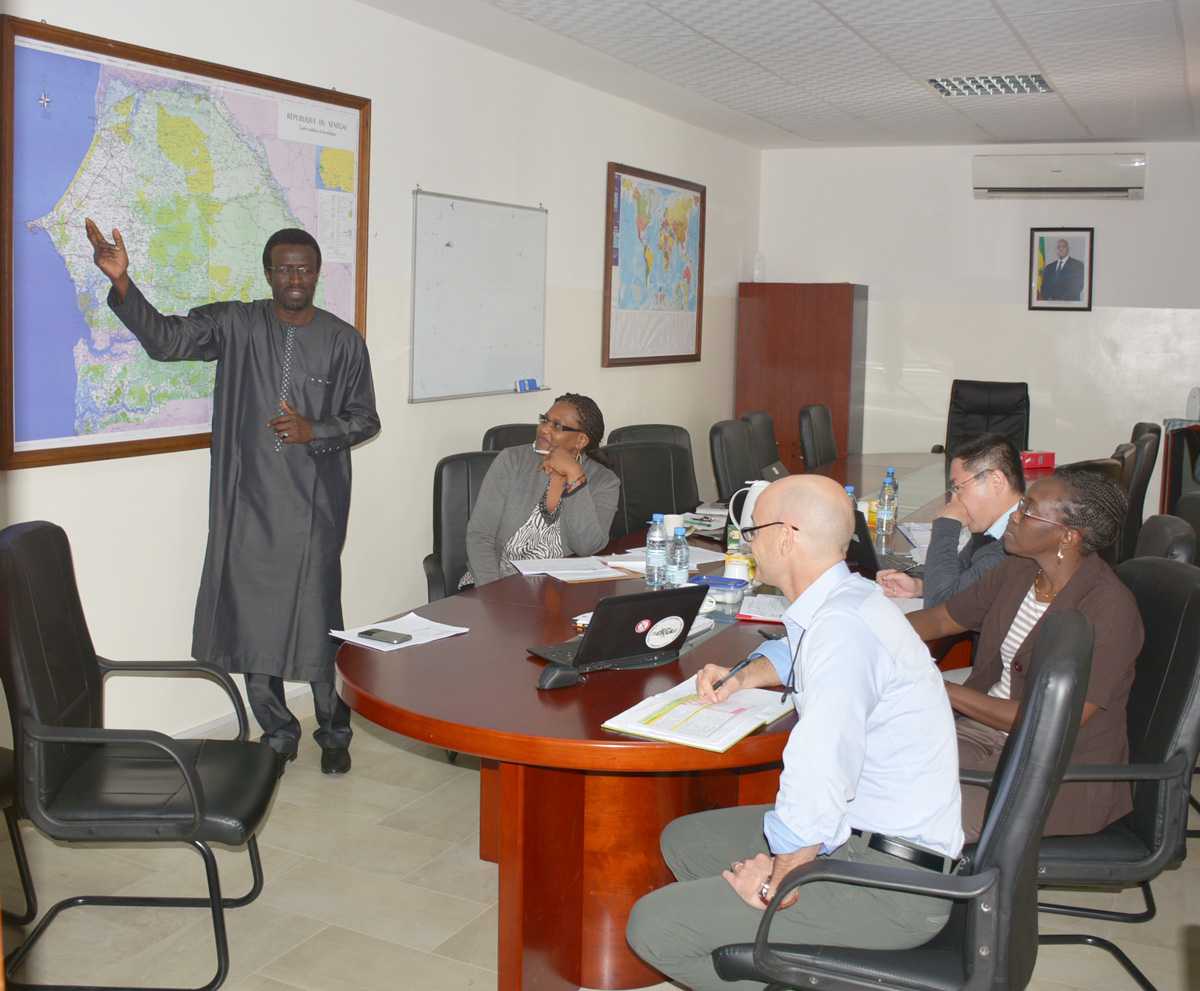Senegal: Emergency Operations Center Becomes a Model in West Africa
“You need to have an Emergency Operations Center.”

Dr. Abdoulaye Bousso at the Health Emergency Operation Center in Dakar Senegal with the CDC Senegal team
That was the message that Dr. Abdoulaye Bousso, the Coordinator of Senegal’s Emergency Operations Center (EOC), repeated to Ministries of Health from across Africa at a meeting of the World Health Organization in Brazzaville, Congo.
Dr. Bousso knows from experience. In 2014, a young man with Ebola traveled from Guinea to Senegal. Before Ebola hit, Dr. Bousso remembers, “We thought we were well prepared. We had our plan, but we did our trainings and simulations without risk. When the case appeared it was really different.”
During the outbreak, response teams from CDC worked hand-in-hand with Senegal’s Ministry of Health to establish the country’s first emergency operations center. Dr. Bousso knew that the new structure would be key to helping Senegal defeat Ebola and respond to future outbreaks. He just had to convince his colleagues. An EOC was a new concept in the country and some leaders were concerned that it would infringe upon their authority.
The biggest question, says Dr. Bousso, “was who will be the chief? And we had to let them know that we are not chiefs. We are coordinators.” He told leaders that the EOC would help them work together better and respond to an emergency faster. “The EOC is a tool for you,” he argued, “I’m not going to take your place and I’m not going to do your job.”
Eventually Dr. Bousso won over his critics. Our biggest accomplishment, he reflects, “was to start. It’s not easy for many countries. They continue to discuss what kind of EOC they should have. Making the decision to start the EOC was very important.”
Today, they’ve done more than start. The EOC has 11 permanent staff members who are actively monitoring infectious disease alerts and developing plans to respond to future outbreaks. While they have not formally activated for a response, the EOC has been utilized to coordinate activities for a chikungunya outbreak and managing Senegalese casualties in the Hajj stampede. Dr. Allé Baba Dieng, a member of Dr. Bousso’s team, is participating in CDC’s Public Health Emergency Management Fellowship in Atlanta, learning from experts in emergency management, developing systems to implement in Senegal’s EOC, and observing CDC’s EOC in action.
Senegal’s progress on their EOC is starting to be recognized throughout the region. In fact, the World Health Organization invited Dr. Bousso to Mauritania to help establish an emergency operations center there.
Our strategy, says Dr. Bousso, has been “to work and to show them something real with results.” Their results are getting noticed.
About this story
CDC is supporting Senegal and 30 other countries to implement the Global Health Security Agenda (GHSA), which aims to improve the world’s ability to prevent, detect and respond to infectious disease threats.
Senegal’s recent investments will help them meet the GHSA Emergency Operations Center target, which includes having an EOC capable of coordinating an emergency response within 120 minutes of the identification of a public health emergency.
Related Links
- Page last reviewed: March 28, 2016
- Page last updated: March 28, 2016
- Content source:
Global Health
Notice: Linking to a non-federal site does not constitute an endorsement by HHS, CDC or any of its employees of the sponsors or the information and products presented on the site.


 ShareCompartir
ShareCompartir